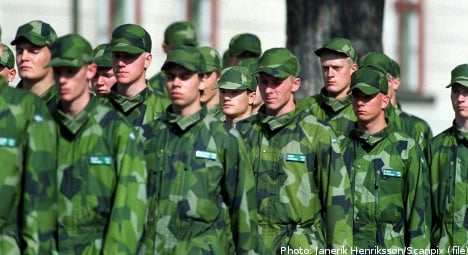Introduced in Sweden in 1901, military service had been winding down for several years, with only those expressing a wish to serve picked during for conscription.
Sweden remained neutral during the two world wars, but with the Soviet Union nearby, wanted to have the capacity to call in 500,000 soldiers at short notice during the Cold War, out of a population of about eight million at the time.
At the height of the East-West tensions, nearly 85 percent of Swedish men carried out military service, with some 50,000 conscripted out of an age group counting 60,000 men.
The numbers have fallen dramatically in recent years, with only an average of about 5,000 conscripted soldiers, including several hundred women since 1980, serving each year.
“The military service ends in Sweden as of today, It was really about time,” Sweden’s daily of reference Dagens Nyheter wrote in an editorial, insisting that with Cold War finished, obligatory military service was no longer needed.
“The obligatory military service had become both old-fashioned and ineffective,” it said.
The Aftonbladet tabloid however lamented the end of an era of social responsibility.
“There is good reason to fear that with the end of military service yet another level of collective conscience will disappear,” wrote Kennet Andreasson in an editorial.
“The connection between obligations and rights has become less and less clear,” he added.
Some of the country’s last conscripts received medals during an official ceremony at the royal palace on Wednesday.
The centre-right government decided last year to end military service, which on average had lasted about 11 months.
At the same time, it decided to loosen the country’s traditionally strict neutrality to allow participation in more international military operations, like the NATO-led mission in Afghanistan.
The Swedish military, which last year employed 34,000 people as well as 38,000 National Guard reserves, has in recent weeks been running a large recruitment campaign with television ads and large street billboards.



 Please whitelist us to continue reading.
Please whitelist us to continue reading.
Member comments